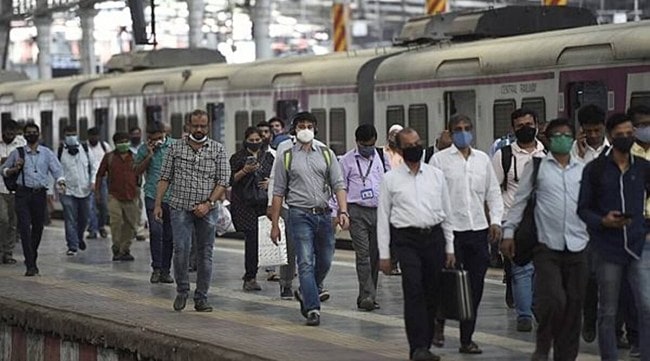Opinion Don’t blame the middle class for political apathy
In India, the political class has never attempted to make political participation enjoyable and rewarding
 What Chidambaram considers as the middle class is a small number of highly urbanised, well-off, income-taxpayers with a minimum per capita income of rupees one lakh a month. (File/Representational)
What Chidambaram considers as the middle class is a small number of highly urbanised, well-off, income-taxpayers with a minimum per capita income of rupees one lakh a month. (File/Representational) The castigation of the middle class by Congress leader P Chidambaram (‘How much do people care?’, IE, July 10) as selfish, myopic and lacking social consciousness and empathy for the relatively deprived belongs to a thread of criticism that’s common to radicals, professional revolutionaries, politicians and those entrenched in the power structure and enjoying all the privileges but suddenly finding loss of power. Chidambaram’s outburst falls in the last category: He makes no attempt to analyse the deep causes that are behind such insulated behaviour.
What Chidambaram considers as the middle class is a small number of highly urbanised, well-off, income-taxpayers with a minimum per capita income of rupees one lakh a month. This is in a situation when the average monthly income of an overwhelming number of Indians in the self-employment and unorganised sector is approximately Rs 10,000 or less a month. In his seminal work, The Social Background of Indian Nationalism, sociologist A R Desai had pointed out that the social base of the Indian nationalist movement was narrow with very limited mass mobilisation. The overwhelming popular support and participation in the nationalist movement is a myth and the fact remains that the passivity of the average Indian surprised leaders as diverse as Bipin Chandra Pal and Mahatma Gandhi. Pal wondered how the British could rule so effectively while maintaining only 32,000 soldiers in India. The widespread, repressive apparatus of a brutal, colonial administration was effectively and obediently manned by Indians themselves. Mahatma Gandhi wondered at the lack of protest from the average citizens of Punjab even when faced with several instances of police brutalities. One of the charges that the Mahatma levelled against the British was that it had made Indians “unmanly”.
The British never used conscription in India. Recruitment during the Second World War was conducted on a slogan of economic betterment. And it was a great success, though soldiers were to be disillusioned later. In comparison, during the Quit India movement, 60,000 people went to jail – not a large number in a mass movement of a country of India’s size. The nationalist movement was led by wealthy lawyers, and non-lawyers like Subhas Chandra Bose and MN Roy were eased out.
This is not to discredit the nationalist movement or the subsequent political evolution but only to remind of the restricted nature of our political space before and after Independence. The political class has never really attempted to expand the base of the middle class, make political participation enjoyable and rewarding, thereby enriching the political process itself. People of different categories who make a modern nation adjust, by and large, to the social, economic and political reality. Incorporation of the middle class in the political process demands its quantitative expansion and developing a political process not guided by dynastic ambitions and the sway of powerful interest groups, leading to the emergence of a reformed state that rewards just meritocracy.
The writer retired as Professor of Political Science, Delhi University






